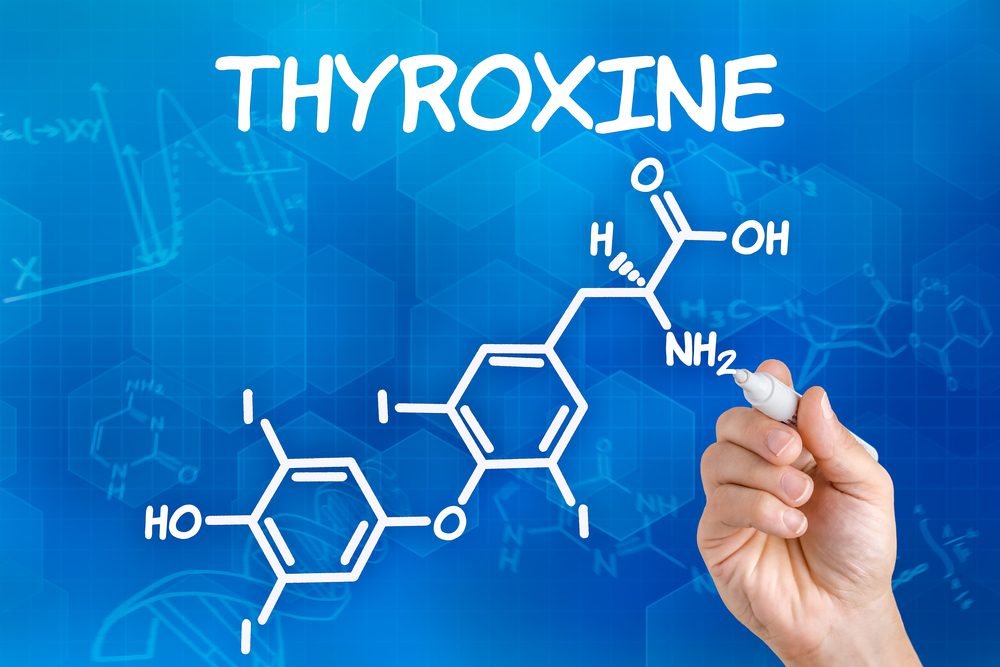- The role of thyroid medication in treating hypothyroidism
- Different types of thyroid medications
- Factors that can lead to overmedication
- Symptoms of excessive thyroid medication intake
- Measures to take when experiencing overmedication symptoms
How Thyroid Medication Addresses Hypothyroidism
Your THYROID GLAND plays a critical role in regulating cellular metabolism, growth, and development. When the gland doesn’t produce sufficient HORMONES, it results in an underactive, or sluggish thyroid called HYPOTHYROIDISM, which can slow down various bodily functions. THYROID HORMONE REPLACEMENT medications, which are a fake (SYNTHETIC) version of what your body makes naturally can sometimes alleviate these symptoms and improve overall health and quality of life.
Types of Thyroid Medications
The thyroid gland produces two hormones: THYROXINE (T4) and TRIIODOTHYRONINE (T3). Thyroid hormone replacement medications also come in T4 and T3 formulations. In most cases, treatment begins with T4-only medications, assuming the body CAN CONVERT T4 (which is the INACTIVE form) to the ACTIVE T3 hormone. However, some patients may require combination therapies using desiccated (dry) thyroid gland from animals or compounded medications for optimal results.
Factors Contributing to Overmedication
Several factors can lead to OVERMEDICATION, including:
Titration
During the titration process, T4 levels may be too high, causing hyperthyroidism symptoms. Additionally, starting on too high of a dose can lead to overmedication.
Drug quality variations
Different thyroid medications can have VARYING LEVELS OF ABSORPTION, leading to overmedication.
Dietary changes
Changes in DIET and NUTRIENTS can affect thyroid hormone absorption.
Medications and supplements
Some MEDICATION and/or SUPPLEMENTS can interfere with thyroid hormone absorption or boost thyroid function, leading to overmedication.
Pregnancy
Thyroid hormone medication dosages often need to be adjusted during PREGNANCY and the postpartum period to prevent overmedication.
Symptoms of Excessive Thyroid Medication Intake
When thyroxine levels are TOO HIGH, it can lead to symptoms of HYPERTHYROIDISM, including:
- Racing heart
- Perspiration
- Nervousness
- Irritability
- Tremors
- Insomnia
- Anxiety
- Brittle hair
- Thinning skin
- Muscle weakness
- Frequent bowel movements
In some cases, overmedication symptoms can paradoxically resemble those of low thyroid hormone levels, such as exhaustion, achiness, and weight gain.
Managing Overmedication Symptoms
If you suspect that your thyroid medication dosage is too high, consult your doctor and request an EXPANDED (FULL) PANEL THYROID BLOOD TEST.
Your doctor will assess your thyroid-stimulating hormone (TSH), T4, and T3 levels to determine if you’re experiencing overmedication. Tracking your symptoms and their timings can also provide valuable information for your doctor to make the necessary adjustments to your dosage.
Remember, it’s crucial not to abruptly stop your thyroid medication. Work closely with your healthcare provider to ensure proper dosage adjustments and maintain a healthy thyroid hormone balance.
Monitoring Your Thyroid Hormone Levels
REGULAR MONITORING of your thyroid hormone levels is essential to ensure the effectiveness of your medication and prevent overmedication. Communicate any changes in your symptoms, lifestyle, or overall health to your doctor, as these factors may affect your medication requirements.
Blood Tests for Thyroid Hormone Levels
The primary blood tests used to monitor thyroid hormone levels include:
Thyroid-stimulating hormone (TSH):
TSH levels help assess your body’s demand for thyroid hormones. TSH is actually a hormone produced by your BRAIN (the PITUITARY GLAND) and when it is too HIGH is means that your thyroid gland is NOT producing enough hormone. A low TSH level may indicate overmedication, while a high TSH level could signify undermedication.
Free T4 (FT4):
FT4 measures the available T4 hormone in the blood. High FT4 levels can be a sign of overmedication.
Free T3 (FT3):
FT3 measures the available T3 hormone in the blood. Elevated FT3 levels may also indicate overmedication.
Your doctor may recommend regular blood tests to ensure your thyroid hormone levels remain within the optimal range.
Strategies for Preventing Overmedication
To minimize the risk of overmedication, consider the following tips:
Adhere to your doctor’s instructions: Take your thyroid medication as prescribed and notify your doctor of any changes in your health or lifestyle.
Be consistent with your medication:
Take your medication at the same time each day and follow any specific instructions regarding food, beverages, or other medications that may affect absorption.
Monitor your symptoms:
Keep a log of your symptoms and their severity, as well as any changes in your condition. This information can help your doctor make more informed decisions about your medication and dosage.
Communicate with your healthcare team
Maintain open communication with your doctor and other healthcare professionals involved in your care. Discuss any concerns or questions you may have regarding your thyroid medication.
Stay informed about your condition:
Educate yourself about hypothyroidism, hyperthyroidism, and thyroid medications. Understanding your condition and treatment options can help you make better decisions about your health.
Conclusion
Overmedication with thyroid hormone replacement can lead to various symptoms and potential complications. By closely monitoring your thyroid hormone levels, adhering to your prescribed medication plan, and maintaining open communication with your healthcare team, you can minimize the risk of overmedication and maintain a healthy thyroid hormone balance.

Dr. Bob was born and raised in Florham Park, New Jersey.
He loved the philosophy of vitalism, which teaches about the incredible, innate intelligence of our bodies and its power to self-heal when given the opportunity.

